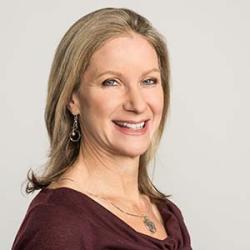 Richard Greenhouse
Richard Greenhouse
In the 27 years since Anita Hill testified before the Senate Judiciary Committee about sexual harassment by then-Supreme Court nominee Clarence Thomas, issues of harassment and gender inequality in the workforce have not disappeared.
Indeed, Hill observed, it would be tempting to view the recent Supreme Court nomination proceedings of Brett Kavanaugh and think that not much has changed. That would be a mistake, she told a standing room–only crowd at Monday’s plenary session of Learn Serve Lead 2018: The AAMC Annual Meeting.
“We now have a body of knowledge and an understanding of this problem that we didn’t have in 1991,” Hill said. “We now know that 1 in 3 women are harassed on the job and that 1 in 5 women on college campuses have been assaulted.”
Medicine and the biomedical sciences have not been immune: Hill referenced the National Academies of Science, Engineering, and Medicine report released last summer that as many as half of medical students have experienced sexual harassment, and another report that found one in six patients have experienced trauma from sexual violence.
“That trauma is real; that pain is real. It’s real in the lives of students. It’s real in the lives of patients,” she said. “Whatever affects any of these individuals directly affects all of us indirectly. It affects our work, our well-being, and how we move forward as a society.”
Unlike in 1991, though, individuals and organizations are now motivated to respond to allegations of gender harassment, particularly in the last year as the #MeToo movement has gained momentum, Hill said.
“In this moment, we have an opportunity and an obligation to step up,” she said. “We cannot turn a blind eye to it. Yes, there are sexual harassment deniers, but we outnumber them. We have to be louder than the deniers.”
Hill decried the “innocent until proven guilty” argument that is often invoked in instances of gender harassment, stating that this burden of proof belongs in the courtroom and not on college campuses or in the workplace.
Rather, those who are guilty of sexual harassment should be punished and even asked to leave, and not be protected through nondisclosure agreements. “After a cursory ‘vacation,’ we should not be passing them along to other institutions,” she said. “You have a duty within your organization to protect the interests of the community, and if you find reasonable evidence of a violation, you should not be afraid of firing or removing people.”
Institutions of higher learning must also actively work to ensure that women are treated equitably throughout the continuum of their careers.
“Harassment doesn’t happen in isolation,” she continued. “It cannot be divorced from pay discrimination nor assignment discrimination” or in evaluations that keep women from being promoted.
“Everybody has a role to play” in combating sexual harassment in medicine, Hill said, from leaders of academic medical institutions who must foster a culture of zero tolerance to medical educators who must craft curricula that help students recognize and treat sexual violence, to lead scientists who must ensure that women are trained and hired in the most prestigious biomedical research labs.
“We are all in this together,” she concluded. “The people who walk through your doors deserve a better chance to be treated effectively and fairly than we are giving them now.”
